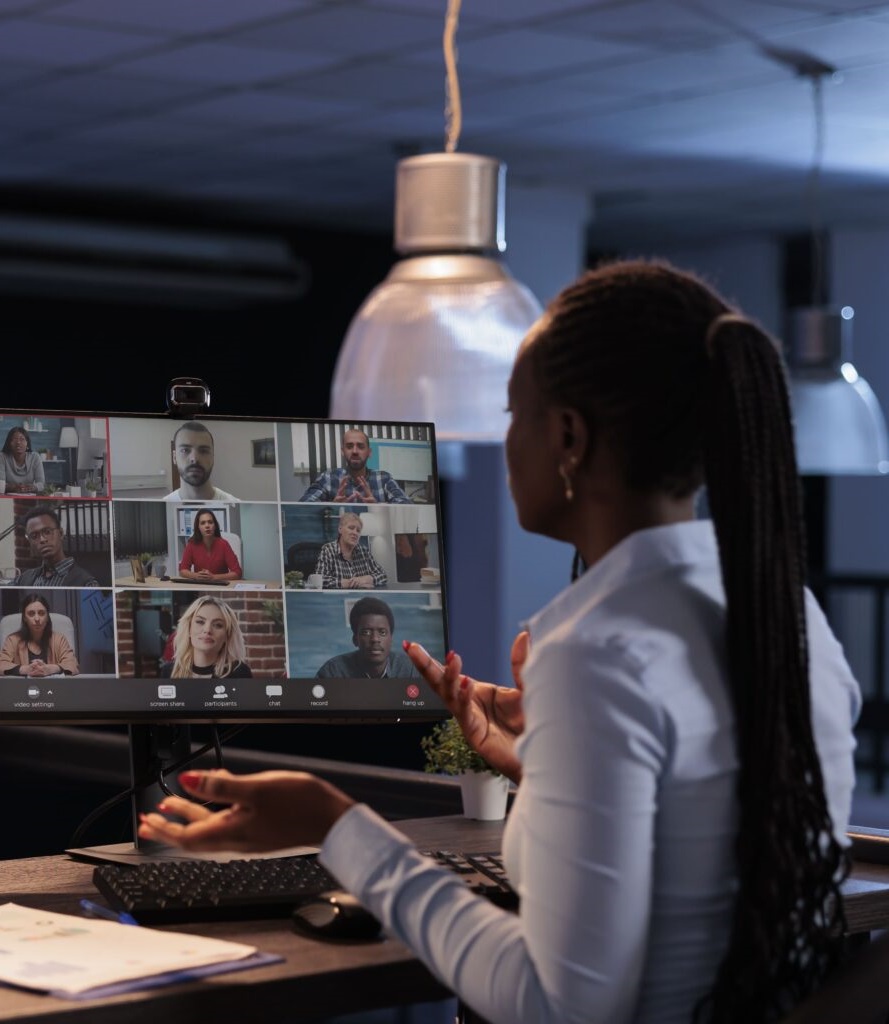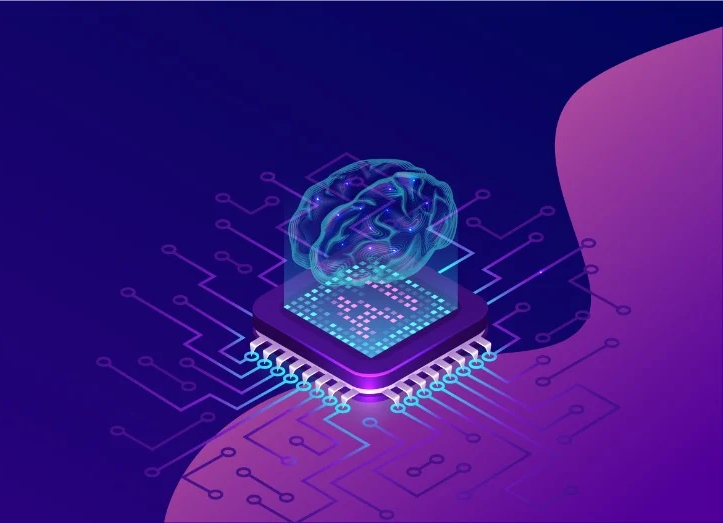
Nearsure interviews Mysten Labs’ Engineering Manager

At Nearsure, we keep making strides into making powerful women visible. On this occasion, we’re honored to be showcasing an interview with Mysten Labs’ Engineering Manager Anwaya Aras.
As it is well-known, we take great pride in keeping close relationships with all our select business partners at Nearsure. We couldn’t be happier to have access to Anwaya Aras’ personal insight this time as we stress out opinions around women’s leading involvement in the tech industry. Thank you, Anwaya, for your continued support to our collaborative efforts.
We’re engaging in an interview format here for our readers to have first-hand access to crucial conversations. As Anwaya tells us more about her position, she also outlines the challenges she’s facing as a woman in the tech field, her main pain points in this industry, and her overall vision on female empowerment in our niche.
1. Nearsure: What’s your current role in your organization?
Anwaya: I’m an Engineering Manager at Mysten Labs.
2. Nearsure: What are your main challenges as a woman in the tech field?
Anwaya: One of the biggest challenges I face as a woman in tech is the lack of role models in leadership positions. The tech field is plagued with diversity issues which results in low representation for women. Fortunately, the industry is willing to have an open dialog and recognizes this problem, but we still are quite far from the finish line.
Having role models and strong mentors in your career is extremely important to help grow and overcome hurdles.
Seeing other women thrive in the industry, learning from their experiences, being able to relate are some things that ease this journey. However, due to severe under-representation of women in the tech field and even fewer women in leadership roles, it’s challenging to find role models.
The other challenge I face as a woman in the tech field is overcoming stereotypes and generalization. People tend to make assumptions and form opinions based on external appearances, preconceived notions and subconscious biases. As women, we tend to want to be liked and accepted and that might come at the cost of your true authentic self.
Navigating through these assumptions and biases with strength and confidence is the key to overcoming this challenge.
3. Nearsure: What is your main pain point?
Anwaya: If I had to choose one main pain point, it would be imposter syndrome. Statistics show us that women in all stages of their careers are cripped by imposter syndrome and I am no exception. We tend to brush off our achievements and hesitate to talk about our successes under the guise of sounding arrogant and overconfident. There is a fine line between humility about one’s achievements and the feeling of them being underserved and we tend to incline more towards humility and modesty. Additionally, living in a patriarchal society, we often fall prey to societal expectations and cultural standards which persistently erode our confidence further.
Although common, it’s very important to successfully overcome imposter syndrome to march ahead in our careers. Recognize, admit and call out your strengths and be audacious about them. While it’s important to be self aware, know when you’re being harsh on yourself and trust your ability to learn. Rely on mentors, close friends and your support network to restore your confidence. Confront your deepest beliefs and move past the feeling of inadequacy. Learn to identify when imposter syndrome creeps in, know that you deserve every bit of your achievements and calm down every nagging voice that says otherwise, even if it’s yours!
4. Nearsure: What can we do to encourage more women to work in technology?
Anwaya: The barriers for women to work in technology start much before the entry to the field. If we look at the percentage of women pursuing STEM degrees, it’s far lesser than men’s. As a society, we need to make tech more accessible to everyone and conceptualize it through a more integrated curriculum.
Once we have enough women pursuing technology careers, we need to collectively invest in these women so that they stay and thrive in a sustainable fashion. The industry needs to ensure that we are actively building a diverse talent pool without letting gender biases creep in. Venture into diversity initiatives, coaching, and mentoring women talent; and encouraging and supporting their careers and goals.
Finally, spread awareness about this issue and influence your circles to bring out change. Leverage conferences and media outlets to connect women and share their stories. Encouraging women in technology can be done in numerous ways: whether it’s supporting your spouse by doing household chores or encouraging your daughter to pursue a STEM degree or championing your woman colleague’s achievement, the onus is on each and everyone of us.
5. Nearsure: When have you felt especially supported in your role or organization?
Anwaya: As I embarked on my professional journey, I’ve been fortunate to be a part of supportive teams with strong leaders who gave utmost importance to diversity and inclusion at the workplace.
There are times when you might feel lost and confused and perhaps isolated. I specifically remember one such incident when I was at a crossroads making a choice between my career and personal life. This is when I turned to a woman leader I met earlier through Lady Eng, a diversity initiative at Uber. Now, it’s important to note that this person managed a large organization of hundreds of people and would be extremely busy. Yet, she managed to make time for me and immediately jumped onto a call to help me out. She told me her own story which deeply resonated with my personal experience. Her genuine, yet motivating words gave me the strength and courage to make the right decision.
While this is a small and simple incident, it’s etched in my memory because that was a time I didn’t feel alone but supported. I realized I have this set of people that I can truly rely on which made all the difference to my career.
6. Nearsure: Describe your career trajectory in a nutshell.
Anwaya: My career started in the research domain when my interests primarily lied in Artificial Intelligence and Machine Learning. I worked on my research thesis at Inria Labs, France where we were working on trying to get computers to understand music using Artificial Intelligence and Machine Learning. Artificial Intelligence excited me and I decided to come to the US to pursue higher education. I received an admit from University of California-San Diego where I came for my Masters degree with the hope of pursuing a PhD degree eventually but instead got a job at Uber and never looked back. The tech industry and the world within Uber was fascinating! My first job was as a Software Engineer with Uber’s Fraud Platform team where I worked on fraud detection and prevention platforms using sophisticated machine learning models and data pipelines flowing from all over Uber.
From there, my role grew from Software Engineer to Senior Software Engineer to Tech Lead. At this point, I wanted to explore Engineering leadership and was fortunate to be in an organization that supported my ambitions and career. Thus, I transitioned into an Engineering Manager role. I started with a small team of just 5 engineers leading a newly created domain: Consumer Engagement for Uber Eats. It was an exciting time and I was heads down in execution and learning mode and Uber continued supporting my career. Thus, I was able to grow my team and eventually lead the entire Consumer Delivery experience charter for Uber Groceries.
7. Nearsure: How do you believe your experience has been reflective of other female professionals in tech or at your organization?
Anwaya: As a central lead for Women of Delivery Engineering, for example, I got to meet and bond with several other females at my organization. I also gave talks and attended several conferences where I got to interact with females beyond my organization. As I listened to their stories, I couldn’t help but notice the obvious overlap between my experiences and theirs. While specific incidents might differ, the central theme and substance is what all of us women can relate to. Being one of the very few girls in a Computer Science class, getting spoken over by an aggressive male in the room, managing confidence in an opinionated debate, shying away from expressing your opinions only to find out you were right, trying to be agreeable and likable even though you don’t completely agree with the person in front of you, not having anyone to look up to as you navigate your career, telling your family you want to study further even though your “biological clock is ticking” are just some of the common experiences you go through as you steer your academic and professional journey.
While these experiences might not be pleasant, the difficulties in our lives teach us the most and help propel us in the right direction. These experiences give me strength and fill me up with hope with the possibility of building a better future for all females in tech just like the previous generation of females did for me.
Summary
From women having role models they can follow to guides with whom they can speak who understand their shared experiences, support for women in tech can come in many ways. Testaments of women in high tech roles perennially disclose gender bias as women and other diversities attempt to foster their professional and academic careers. Stay tuned for more content on powerful women making a difference.




